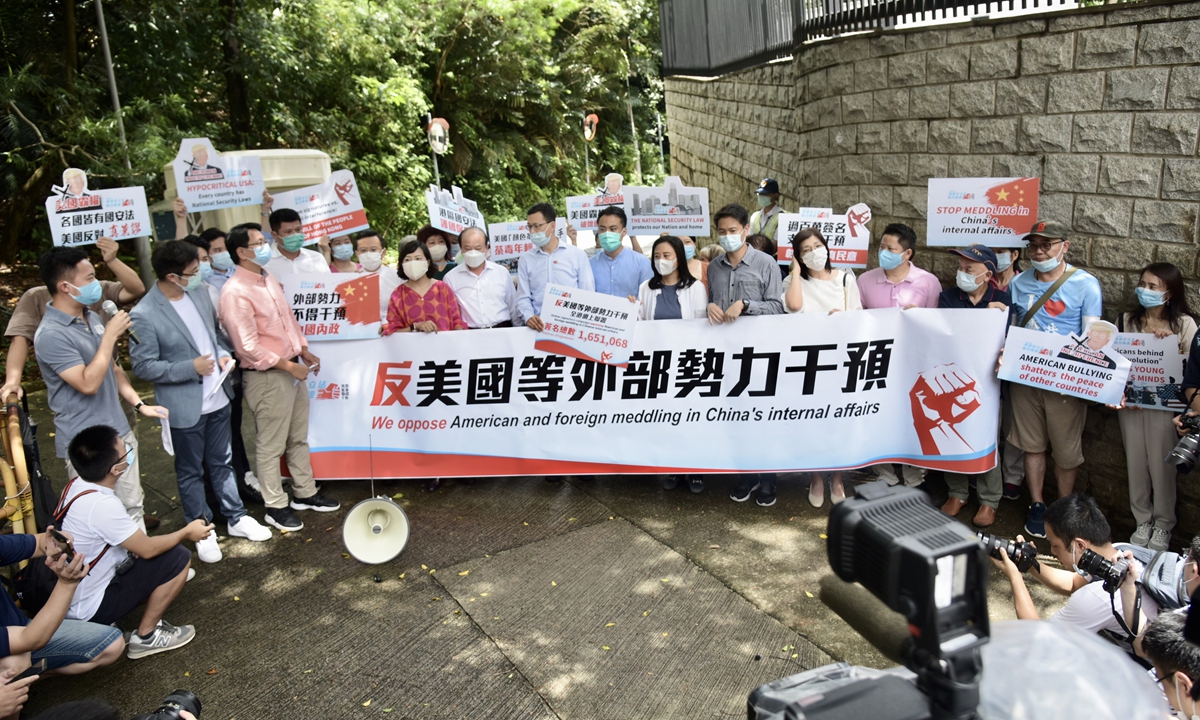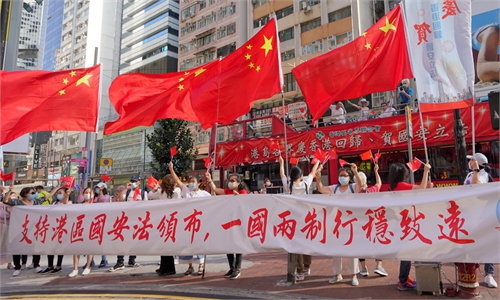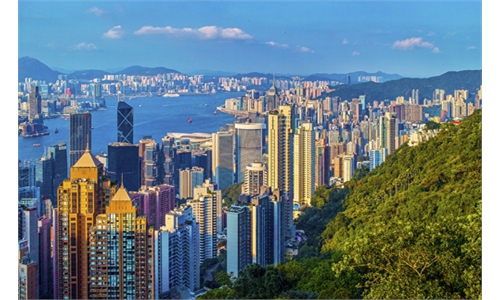
Hong Kong citizens gather on Thursday to oppose American and foreign meddling in China's internal affairs. Photo: cnsphoto
The US House of Representatives passed the "Hong Kong Autonomy Act" on Wednesday. The bill states the US government can impose sanctions on individuals, entities and financial institutions that back efforts to "restrict Hong Kong's autonomy." Some believe the bill is an enhanced version of the Hong Kong Human Rights and Democracy Act.
However, the US' current problem is not passing new acts, but how much it is willing to damage Hong Kong and the Chinese mainland at the expense of the country's own interests.
Europe has generally adopted a realistic attitude. Some European countries expressed their concern or opposition to the National Security Law for Hong Kong, but they did not threaten to participate in sanctions against China.
The UK on Wednesday extended immigration rights to Hong Kong British National (Overseas) passport holders from six months to five years. After a further year, they will be able to apply for British citizenship. However, immigration to the UK in this way is difficult for many Hongkongers, let alone having to face many years of uncertainty. Chinese officials have expressed opposition to the UK move, and this is an inevitable attitude of any country under this situation. But the UK's move will not exert any pressure on Chinese society. Chinese people have never opposed Western countries' acceptance of China's "political immigrants."
British society is very resistant to immigrants, and this is one of the main reasons for Brexit. The UK is willing to pretend to embrace Hong Kong residents, but this will not hurt the Chinese people. It depends whether the British people is willing to accept the price of this political posture.
Thus, the US is the only country left that is clamoring for sanctions on China. The US sanctions are merely symbolic. The sanctions allowed by the so-called Hong Kong Human Rights and Democracy Act are far from exhausted. The US has used up those handy tools that will not inflict losses on itself, such as imposing sanctions on officials. The US is just threatening to use sanctions that will also hurt itself.
As Western media have reported, it is difficult for the US to come up with actions that only harm China, or harm China more than the US. Thus, the US needs to think about what to do next.
If Washington wants to destroy Hong Kong, a city that is not at its disposal, at any cost to hurt China, then there are still many things it can do. For example, it can raise Hong Kong's tariffs to that of the mainland, or prevent the Hong Kong dollar from pegging to the US dollar. However, that means the US will lose a large amount of its trade surplus with Hong Kong and will hit the US dollar's status as a global currency. If the US would rather hurt itself to destroy Hong Kong, then the 1.4 billion Chinese people will fight it to the end.
The US has a global financial hegemony, and such hegemony is two-way. The US needs to provide services to the world, and depends on the world's support. If the US abuses such hegemony to impose sanctions on a large economy like China, it will also be a death knell for its financial hegemony, while creating problems for Hong Kong.
China's economic accomplishments are based on the Chinese people's hard work. Hong Kong's huge advantage lies in its irreplaceable status as China's window to the outside world. China will never transfer this position to a city in other Asian economies. Thus, Hong Kong's future is determined by China, not the US.
The Chinese people are diligent, and we have set up a complete industrial base. Although China still falls behind in certain high technology sectors, the country has formed the ability to tackle key problems in cutting-edge technology. The US is increasingly lazy, and is even incapable of controlling the COVID-19 epidemic. Such a country wants to use tricks to contain and scare China. How arrogant and narcissistic it is!



